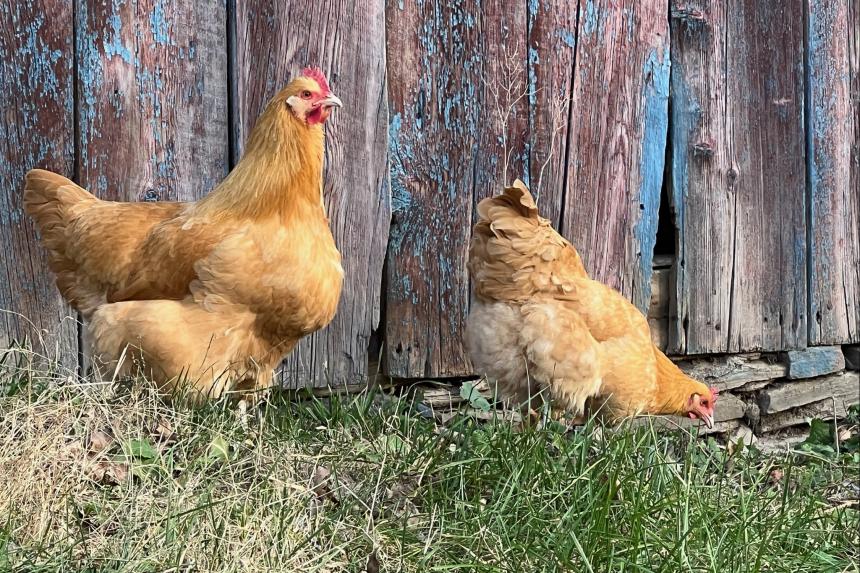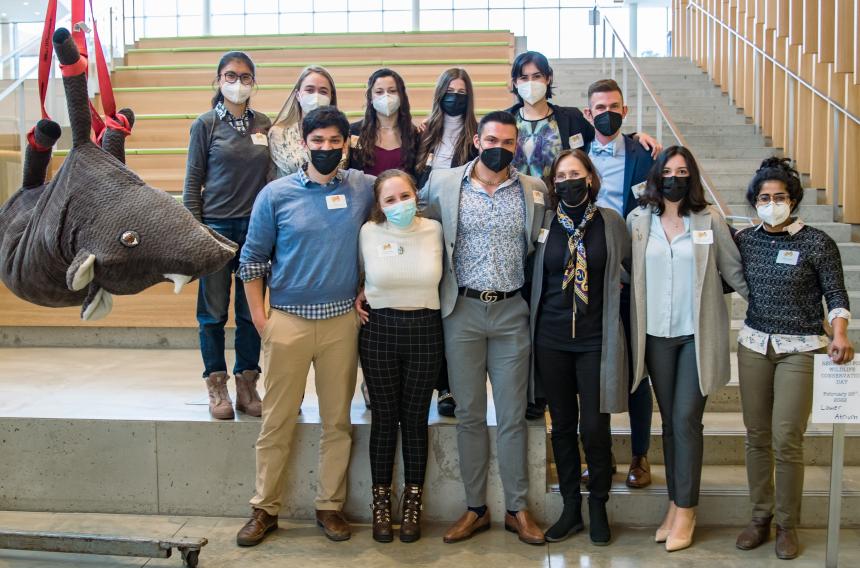In the News

Blog
April 22, 2022
Today is Earth Day! There are many ways to invest in our planet, and together, we can work to secure a healthier future for wildlife, people, and planet today and every day!

April 19, 2022
Dr. Elizabeth Buckles, assistant clinical professor and wildlife pathologist at Cornell University College of Veterinary Medicine, says it's important to keep chickens and turkeys away from wild birds to prevent the H5N1 virus from entering our food supply.

Announcement
March 29, 2022
Our scientists work around the world to improve public health outcomes, strengthen local and international food systems, and catalyze wildlife conservation efforts— all while training the next generation of One Health professionals. Find out how you can support making our world safer and healthier for all.

March 21, 2022
Cornell’s Zoo and Wildlife Society hosted its first Wildlife Conservation Day Feb. 26, a one-day symposium devoted to education and training for students with an interest in non-domestic species.

November 19, 2021
The Cornell University College of Veterinary Medicine launched its new Department of Public and Ecosystem Health, linking interdisciplinary One Health work that benefits the well-being of people, animals and the environment.

October 28, 2021
While global attention is of course currently focused on COVID-19 and other diseases that jump from animals to people, people and domestic animals can also spread disease to wildlife, notes the Cornell Wildlife Health Center's Dr. Steve Osofsky.

October 22, 2021
The Veterinary One Health Association (VOHA) at Cornell hosted its annual symposium featuring guest speakers, special lectures and a virtual poster session covering One Health issues.

October 11, 2021
History is pockmarked with the scars of past zoonotic outbreaks. The Cornell Wildlife Health Center's Dr. Steve Osofsky discusses how global cooperation in a unified “one health” effort is needed to prevent the next pandemic.

October 05, 2021
Dr. Katherine McClure, quantitative disease ecologist and 2019-2021 postdoctoral fellow with the Cornell Atkinson Center for Sustainability and the Cornell Wildlife Health Center, is working to save Hawai’i’s native bird populations from avian malaria.

September 29, 2021
Dr. Katherine McClure, a quantitative disease ecologist, has been working with Birds, Not Mosquitoes as a Cornell Atkinson Center for Sustainability postdoctoral fellow with the Cornell Wildlife Health Center to develop and evaluate incompatible insect technique (IIT) release strategies to help save Hawai‘i’s native bird populations from avian malaria.
